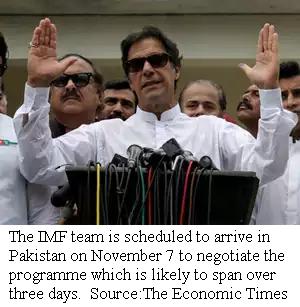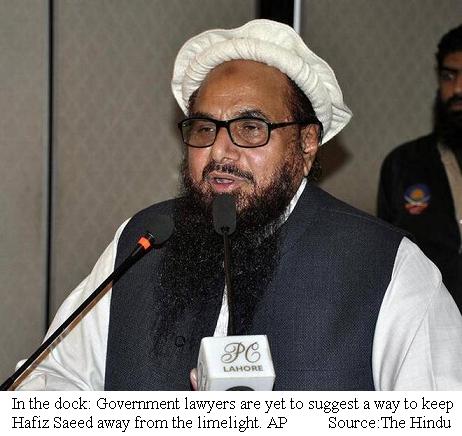|
||||||||
|
|
|
2018-10-29 ArtNo.46411
◆Pakistan to share CPEC debt details with IMF
 【New Delhi】Cash-strapped Pakistan in a desperate move has announced that it is ready to share details of its debt related to the China-Pakistan Economic Corridor (CPEC) with the IMF following tough talk by the Trump administration on bailout package. Over the past quarter of a century, Pakistan has been forced to go to the International Monetary Fund at least half a dozen times. Ahead of the ongoing annual meetings of the Fund and the World Bank in Indonesia, the finance minister in Imran Khan's new Pakistan Tehreek-e-Insaf (PTI) government has accepted that, once again, the country needs a bailout from the IMF. When the Pakistan Tehreek-e-Insaf government came to power in July, Finance Minister Asad Umar announced he would table a mini-budget to stabilise Pakistan's faltering economy by creating political consensus around tough economic steps and imposing austerity measures. Pakistan is ready to share details of the debt related to the China-Pakistan Economic Corridor (CPEC) with the IMF, Finance Minister Asad Umar has said while rejecting the US' view that China-funded projects were to blame for the cash-strapped country's current economic woes. ○Saeed-led JuD, FIF no more on list of banned outfits in Pakistan: report  【Islamabad】India questioned Pakistan's commitment to fighting terrorism following reports that Jamaat-ud Dawa (JuD) and its associate group Falah-I-Insaniyat Foundation are no longer on the list of banned organisations. In a submission to the Islamabad High Court, the legal team representing Hafiz Saeed, accused in the 26/11 Mumbai attacks, said on October 25 the Presidential ordinance of February 2018 that put the organisations on the list, have lapsed, indicating that the government of Prime Minister Imran Khan has not extended them. An official source highlighted Pakistan's support to terrorism and said, "The decision reflects lack of sincerity on the part of Pakistan to meet its international obligation to fight terrorism." A report in Pakistan's leading newspaper Dawn said the Government of Prime Minister Imran Khan had neither extended the ordinance nor attempted to turn it into a law. The developments reveal that the Pakistani position of not extending the Presidential ordinance is a complete turnaround from its submission to the international Financial Action Task Force (FATF) that put it on a"greylist" earlier this year. In February, under pressure from the FATF, the government had promulgated a presidential ordinance to amend the Anti Terrorism Act, 1997, to bring into its purview all organisations proscribed by the United Nations Security Council, including the Jamaat-ud Dawa and Falah-i-Insaniyat Foundation. However, the government of Prime Minister Nawaz Sharif did not bring the ordinance to Parliament in the next session that ended in May, and subsequently the National Assembly was dissolved for elections. While the government's failure to pass the ordinance may allow it to remove the ban on the UN-designated terror groups, it is expected to lead to further censure at the FATF. It will also make it more difficult for international financial institutions and banks to do business in Pakistan and for Pakistani businesses to raise money overseas. At a time when Pakistan faces a crippling $12-billion debt crisis, with a team from the IMF expect to meet the Imran Khan government on November 7, any further FATF strictures could have lasting impact on the Pakistani economy. 【News source】 Pakistan to share CPEC debt details with IMF The limits of Chinese cash IMF loan may come with a political cost for Pakistan PM Imran Khan Pakistan ready to share details of CPEC debts with IMF: Asad Umar Pakistan ban on Hafiz Saeed-led JuD lapses ○One world: The aim of SEAnews ◆Recruitment of Ad-SEAnews CanvassersYour Comments / UnsubscribeSEAnews TwitterSEAnews MessengerSEAnewsFacebookSEAnewsGoogleSEAnews eBookstoreSEAnews eBookstore(GoogleJ)SEAnews world circulation |
|
[Your Comments / Unsubscribe]/[您的意见/退订]/[ご意見/配信停止]
Please do not directly reply to the e-mail address which is used for delivering the newsletter. 请别用递送新闻的邮件地址而直接回信。 メールをお届けした送信専用アドレスには返信しないで下さい。 |